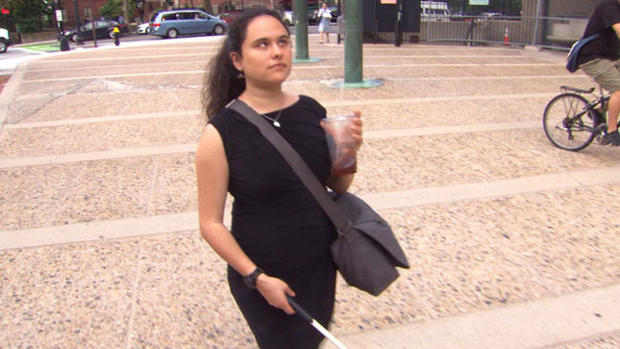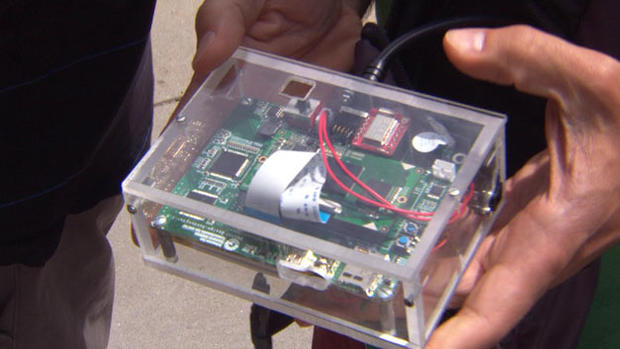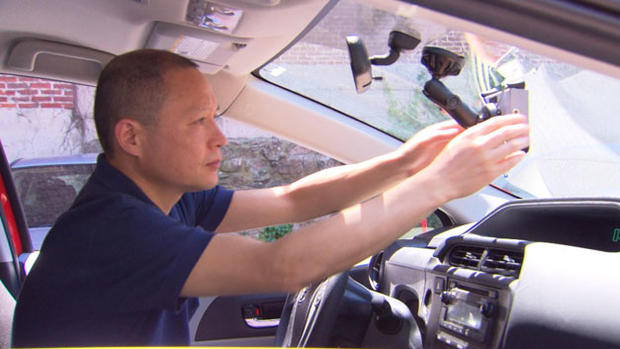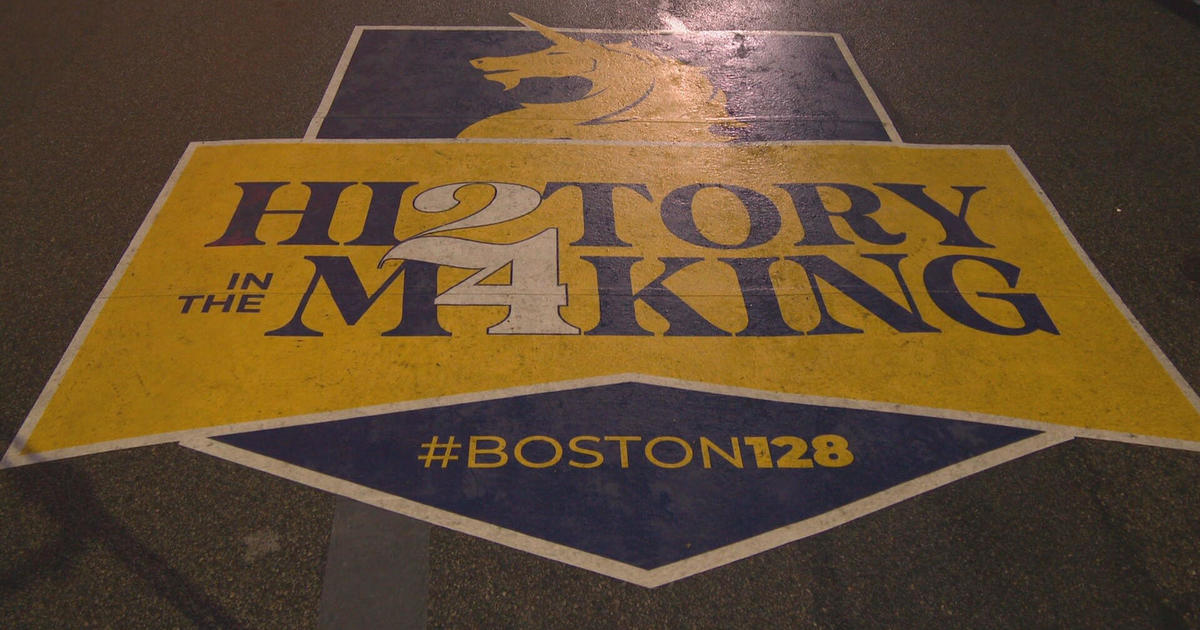Device Used To Help The Blind Could Help Also Prevent Car Crashes
BOSTON (CBS) -- Local researchers have developed a device to help people who are blind navigate their surroundings. The same technology could one day help prevent car accidents.
"Being blind doesn't feel anything like a loss," says 28-year old Lindsay Yazzolino who has been blind from birth. She has not been slowed down one bit: she works, take the "T," and loves to travel.
"I probably am in the minority of people who actually love airports," she chuckles.
Along with her acute hearing and echolocation, her cane keeps her from bumping into things.
"People are always wanting to re-invent the cane but what they don't always realize is that the cane does its job super, super well," Yazzolino says. "It's just filling in those gaps."
Gaps like a protruding wall that her cane might pass under.That's why she's trying out a new collision warning device developed by scientists at Mass Eye and Ear.
That's why she's trying out a new collision warning device developed by scientists at Mass Eye and Ear.
Equipped with a camera and a microcomputer the technology warns about a potential collision through vibrating wristbands.
"If it's vibrating on the left side, it means the obstacles on the left. If it vibrates on the right side, it's on the right," explains Lindsay.
A small study showed the device helped people who couldn't see navigate an obstacle course. In a clinical trial, blind subjects will be asked to use the device at home.
"We want to see how well this device can work in the real life," says Gang Luo, Ph.D., a Mass Eye and Ear scientist and developer of the device.
It's not only for people but cars as well.
Current vehicle technology only sees objects straight on, like another car or a pedestrian, but this tool could scan 180 degrees and alert you if you're going to hit any object, including, for example, a tree.
"Our technology works for everything," says Luo.
As for Yazzolino, who has been getting around just fine all her life, the wearable version might just fill that small but important need.
"Something like this would help to fill in the gaps so I can get some warning time before I kiss a building," says Yazzolino.
Scientists say they expect to get the wearable device out to the public within three to five years.
The car version is expected to be on the road within the next year.






